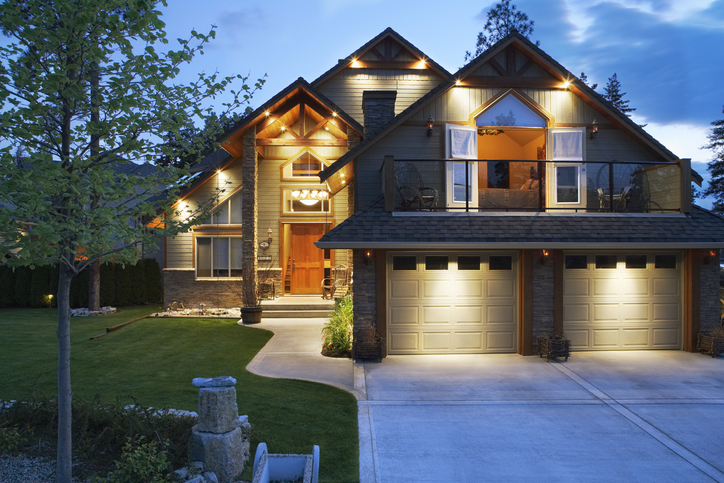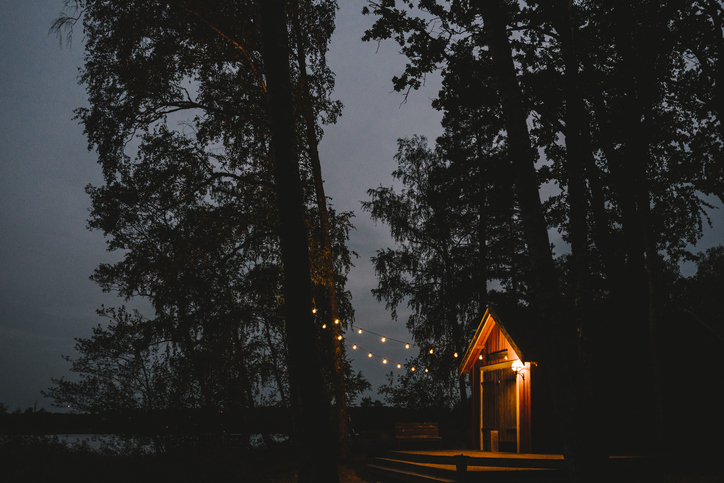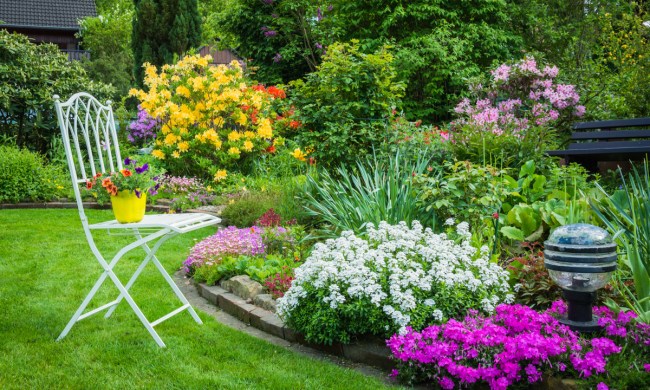Outdoor lights are an important asset to any home, so choosing to install outdoor lights is easy — determining exactly how to manage your lights is harder. Some homeowners, for example, install motion-sensing lights, while others set a timer. We’re here to tell you that putting a timer on your outdoor lights is a great way to go.
To set a 24-hour timer, you’ll need to buy a landscape/outdoor lighting timer to connect to your pre-existing lights. Depending on the product, the timer may be digital or manual, and some high-tech lighting systems even use an app as the control board. Regardless, most timers make it quite simple to set. Just be sure to read all the specific product directions to ensure you complete the installation process correctly.
Once installed, you’ll quickly see all the benefits of these light timers for both you and your property.

Outdoor light timer benefits
Convenience
First and foremost, outdoor light timers are convenient. They can connect to whatever source you want them to, be it the garage, backyard, front porch, or landscape lights. You also don’t need to worry about remembering to turn the lights off when you head to bed, and you’ll never have to arrive home in the dark. An important tidbit: You can set light timers to turn both on and off at certain times or turn them off after a certain amount of time, similar to a sleep timer on a television or computer.
Light timers are especially convenient for outdoor lights because you may not always be outside to turn them on or off when you need to. Also, timed lights are completely customizable to exactly when you want them on or off, whereas motion sensor lights may turn when you don’t need them. All it takes is a windstorm or a large animal to leave you with lights that flicker all night long.
Energy and money saver
In the long run, having your lights on a timer will save you money. Rather than having lights stay on for long periods of time when you forget to turn them off, they will turn off on their own. This conserves energy, which saves you money on your electric bill.
A great example of this is holiday light displays. Many homeowners set their Christmas lights on a timer so they turn on at dawn and turn off late at night or early in the morning when few people are around to see them. This way, neighbors and passersby get a dose of holiday joy whether you were home to light up your facade or not. Christmas lights are a pretty grand example, but the concept applies to any decorative lighting.

Ambiance
Speaking of aesthetics, timers make it easy to set the mood with lights. When you don’t have to worry about when the lights are coming on and off, you have more freedom to play around with lighting in your landscape design, upping your curb appeal and possibly your property value.
Some advanced light timers can be set to different brightnesses at different times so you can create a strobing effect or a more calming waxing and waning of brightness. This also gives you the flexibility to choose soft, dim lighting for a relaxing night at home or more illumination for when you’re expecting guests. If you purchase certain light fixtures, you may even use timers to change the colors. More crafty homeowners can set the colors according to the holiday to celebrate the changing of the seasons.
Home security
It’s common for homeowners to set their front porch lights to turn on at night to deter crime on their property. Motion sensor lights aren’t always enough to shoo away a vandal or burglar looking to cause mischief because the house will be dark until the moment that someone approaches it. If the light stays on through the wee hours of the night, the criminal may go not approach the home in the first place and instead go looking for an easier target that’s more dimly lit and less visible.
Outdoor light timers are more practical than manually turning lights on and off, and they’re convenient and trustworthy. If convenience, home security, ambiance, and energy efficiency are important to you, then timed lights are the way to go. Simply set them once and don’t worry about them again for a while, especially when the home is outfitted with LED bulbs that last for many years.
Timers range from simple dials to more complicated smart home systems, but they all work to improve your time in your home. Whether you’re out and about or relaxing in the bedroom, outdoor light timers are a reliable choice to safeguard your home.



